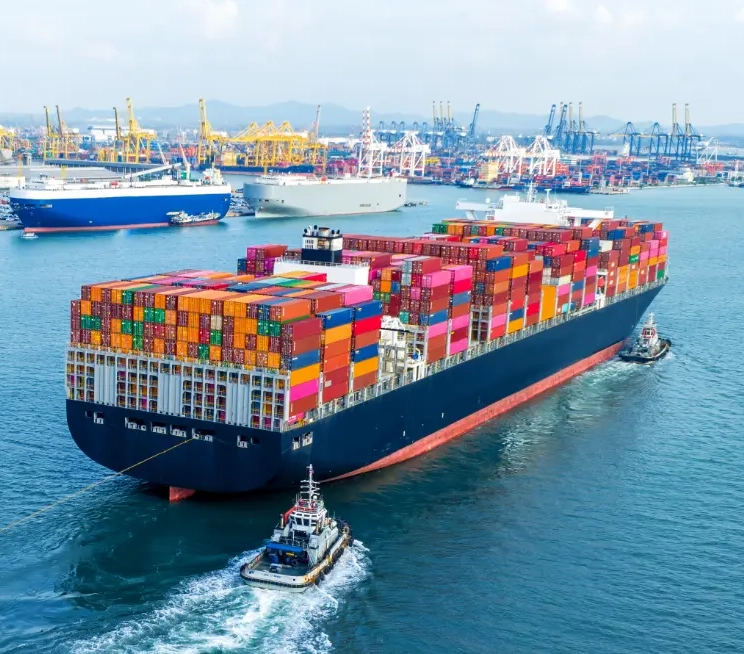In recent years, technology has dramatically transformed many industries, and the freight forwarding sector is no exception. Freight forwarding, which involves managing the logistics of shipping goods from one place to another, has seen significant changes due to technological advancements. These changes have made the process more efficient, transparent, and cost-effective.
Let’s explore how technology is impacting the freight forwarding industry in simple terms.

1. Streamlining Operations
One of the biggest ways technology has impacted freight forwarding is by streamlining operations. In the past, managing shipments, tracking cargo, and handling paperwork were often tedious and time-consuming tasks. Now, technology has automated many of these processes.
Software systems can now handle booking, documentation, and tracking automatically, reducing human error and speeding up the entire process. This means shipments are processed faster, and businesses can handle more shipments with less effort.
2. Enhanced Tracking and Visibility
Technology has also improved tracking and visibility in freight forwarding. With GPS and real-time tracking systems, businesses and customers can now monitor the location of their shipments at any time. This transparency helps in reducing the uncertainty and anxiety that can come with waiting for deliveries.
It also allows businesses to quickly address any issues that may arise during transit, such as delays or route changes. Enhanced tracking ensures that everyone involved in the shipping process stays informed and can make better decisions.
3. Improved Communication
Effective communication is crucial in freight forwarding, and technology has greatly enhanced this aspect. Modern communication tools such as email, instant messaging, and video conferencing have made it easier for freight forwarders, shippers, and customers to stay in touch.
This improved communication helps in resolving issues more quickly and ensures that all parties are on the same page throughout the shipping process. Additionally, many freight forwarding companies now use customer relationship management (CRM) systems to manage and analyze customer interactions, further improving communication and service quality.
4. Data-Driven Decision Making
Technology has introduced the power of data analytics to the freight forwarding industry. By analyzing data from various sources, such as shipment histories and market trends, businesses can make more informed decisions.
For example, data analytics can help freight forwarders optimize routes, reduce costs, and predict potential disruptions. This data-driven approach leads to more efficient operations and better strategic planning.
5. Enhanced Security
Security is a major concern in freight forwarding, and technology has made significant strides in this area. Advanced security systems, including digital surveillance and biometric access controls, help protect cargo and facilities.
Additionally, blockchain technology is being explored for its potential to enhance security and transparency in shipping documentation and transactions. With these technological advancements, the risk of theft, fraud, and other security issues is reduced.
6. Cost Efficiency
Technology has also contributed to cost efficiency in freight forwarding. Automated systems and digital tools reduce the need for manual labor and paperwork, cutting operational costs. Furthermore, technology enables businesses to optimize routes and reduce fuel consumption, leading to additional cost savings.
By leveraging technology, freight forwarders can offer more competitive pricing to their clients while maintaining healthy profit margins.
7. Environmental Impact
Technology is also playing a role in reducing the environmental impact of freight forwarding. Innovations such as electric vehicles, fuel-efficient engines, and optimized route planning help decrease the carbon footprint of shipping operations.
Many companies are adopting green technologies and practices to meet sustainability goals and respond to increasing environmental regulations. Technology is helping the industry become more eco-friendly and align with global efforts to combat climate change.
8. Future Prospects
The impact of technology on freight forwarding is likely to continue evolving. Emerging technologies such as artificial intelligence (AI), the Internet of Things (IoT), and autonomous vehicles hold the promise of further transforming the industry.
AI can enhance predictive analytics and automation, IoT can improve real-time monitoring, and autonomous vehicles can revolutionize transportation logistics.
Final Thought
Technology has had a profound impact on the freight forwarding industry. It has streamlined operations, improved tracking and communication, enabled data-driven decision-making, enhanced security, reduced costs, and contributed to environmental sustainability.
As technology continues to advance, the freight forwarding industry will likely see even more innovations that will further enhance efficiency and effectiveness. Embracing these technological changes is crucial for businesses looking to stay competitive and meet the evolving demands of the global market.
Stay ahead in the freight forwarding industry—embrace the power of technology to streamline operations and reduce costs. Discover how your business can benefit today with Eleevate Logistics!


